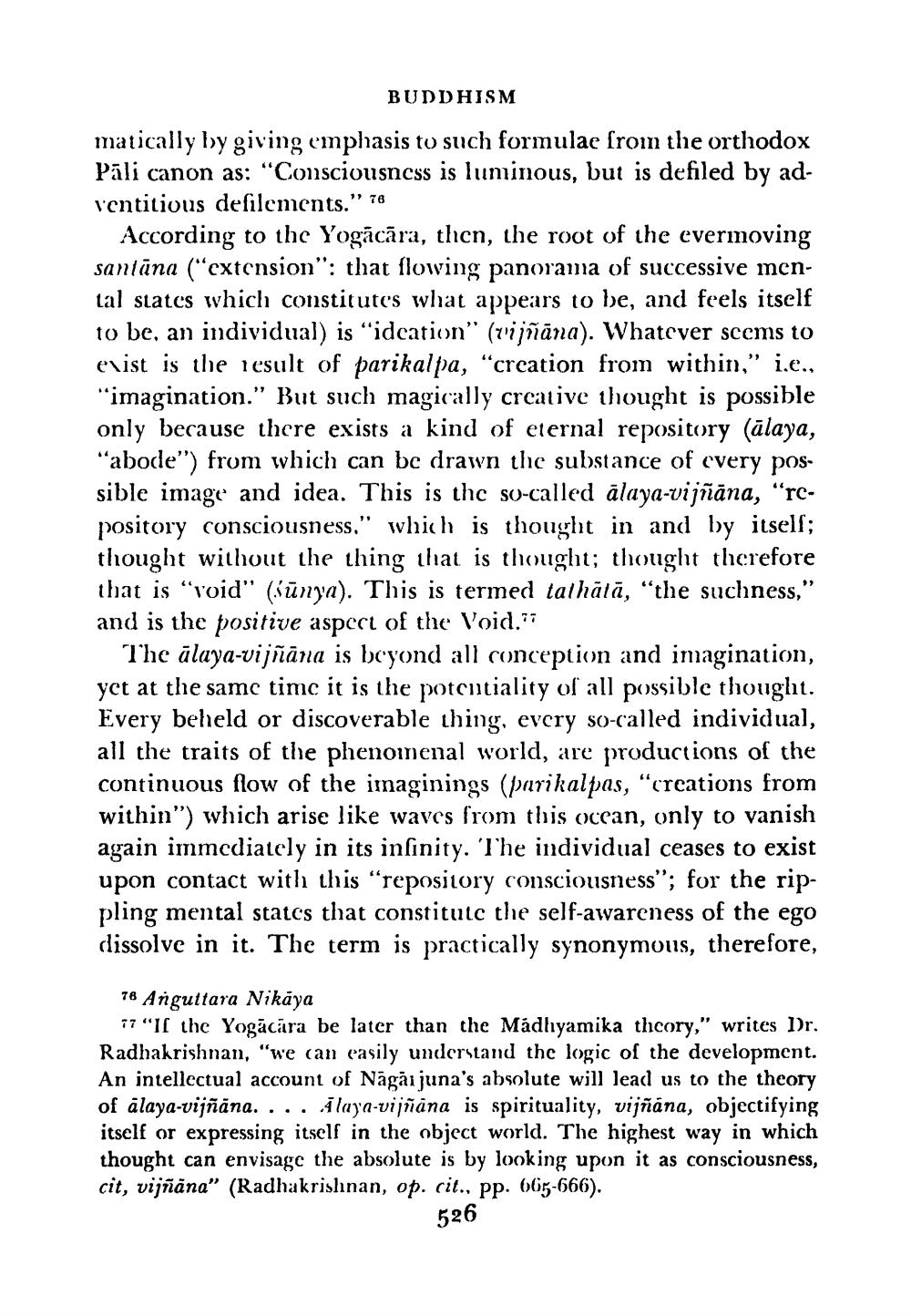________________
BUDDHISM
matically by giving emphasis to such formulae from the orthodox Pāli canon as: "Consciousness is luminous, but is defiled by adventitious defilements." 76
According to the Yogācāra, then, the root of the evermoving santāna ("extension": that flowing panorama of successive mental states which constitutes what appears to be, and feels itself to be, an individual) is "ideation" (vijñāna). Whatever seems to exist is the result of parikalpa, "creation from within," ie., "imagination." But such magically creative thought is possible only because there exists a kind of eternal repository (ālaya, "abode") from which can be drawn the substance of every possible image and idea. This is the so-called ālaya-vijñāna, “repository consciousness." which is thought in and by itself; thought without the thing that is thought; thought therefore that is "void" (Sūnya). This is termed tathātā, “the suchness," and is the positive aspect of the Void."
The ālaya-vijñāna is beyond all conception and imagination, yet at the same time it is the potentiality of all possible thought. Every beheld or discoverable thing, every so-called individual, all the traits of the phenomenal world, are productions of the continuous flow of the imaginings (parikalpas, "creations from within") which arise like waves from this ocean, only to vanish again immediately in its infinity. The individual ceases to exist upon contact with this "repository consciousness"; for the rippling mental states that constitute the self-awareness of the ego dissolve in it. The term is practically synonymous, therefore,
78 Anguttara Nikaya
77 "If the Yogacara be later than the Madhyamika theory," writes Dr. Radhakrishnan, "we can easily understand the logic of the development. An intellectual account of Nagai juna's absolute will lead us to the theory of alaya-vijñāna.... Ālaya-vijñāna is spirituality, vijñāna, objectifying itself or expressing itself in the object world. The highest way in which thought can envisage the absolute is by looking upon it as consciousness, cit, vijñāna" (Radhakrishnan, op. cit., pp. 665-666).
526




